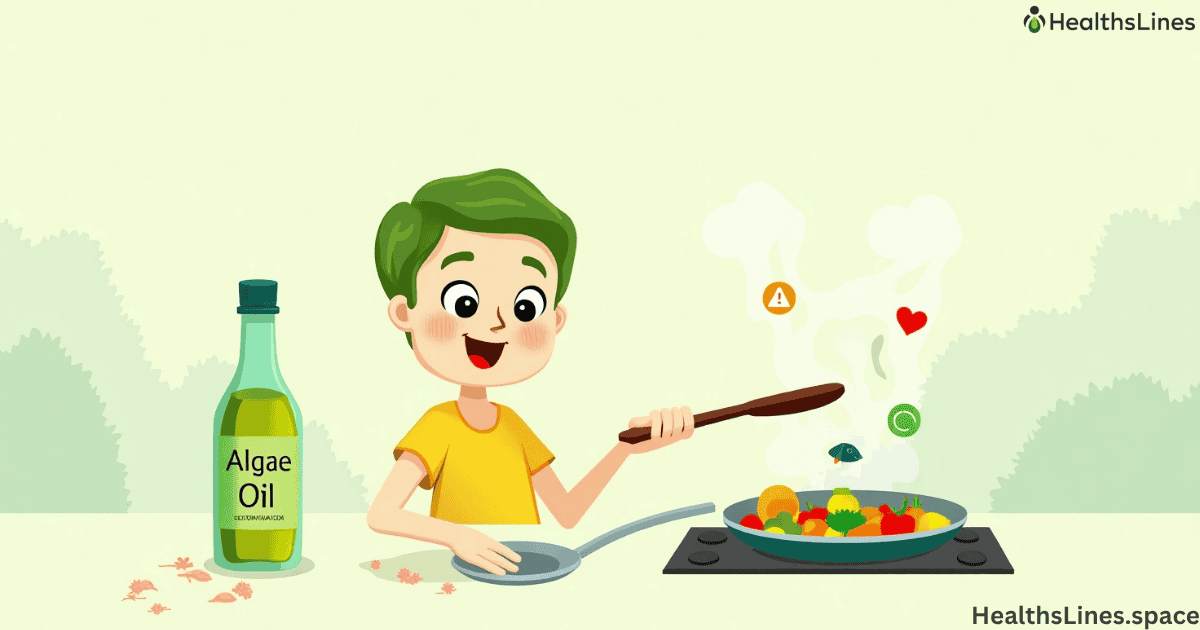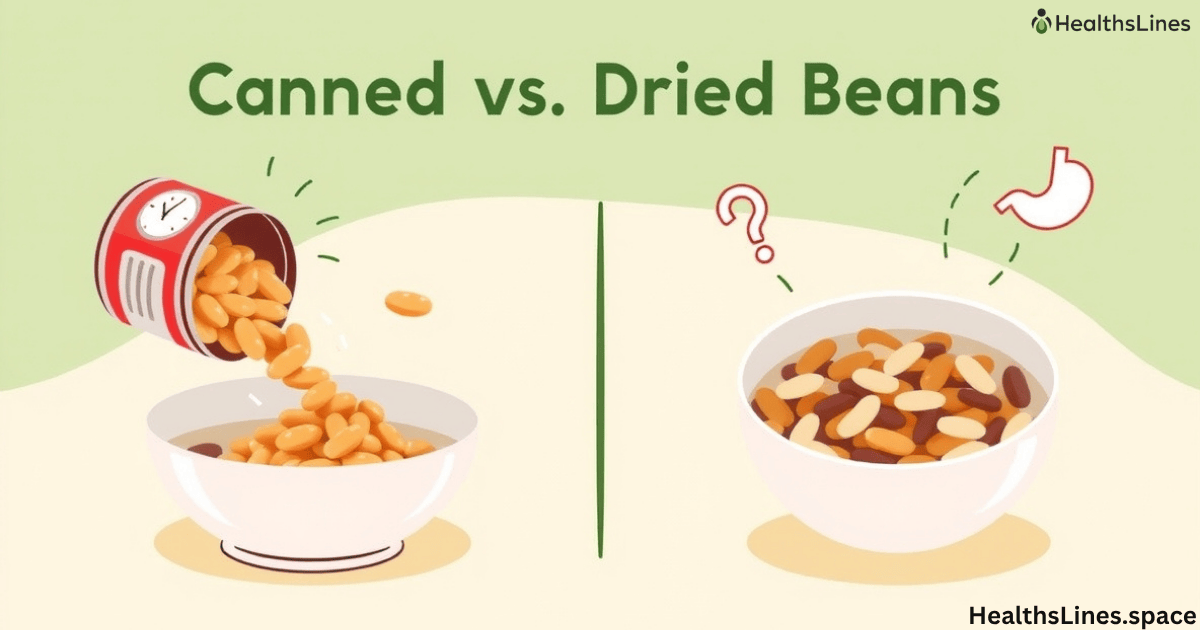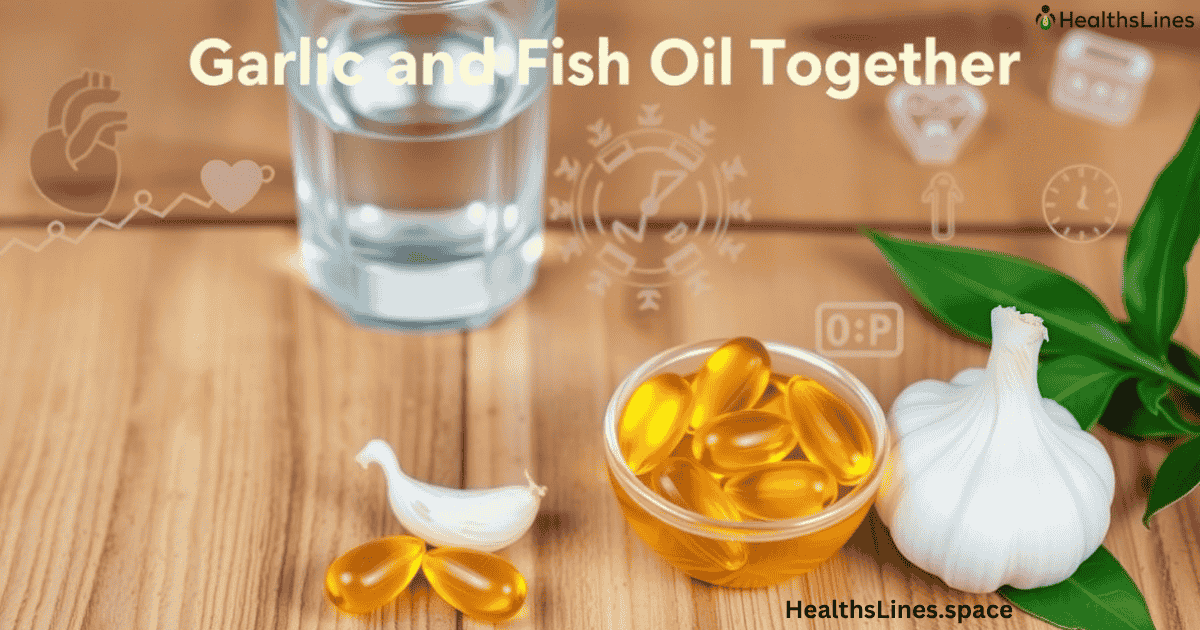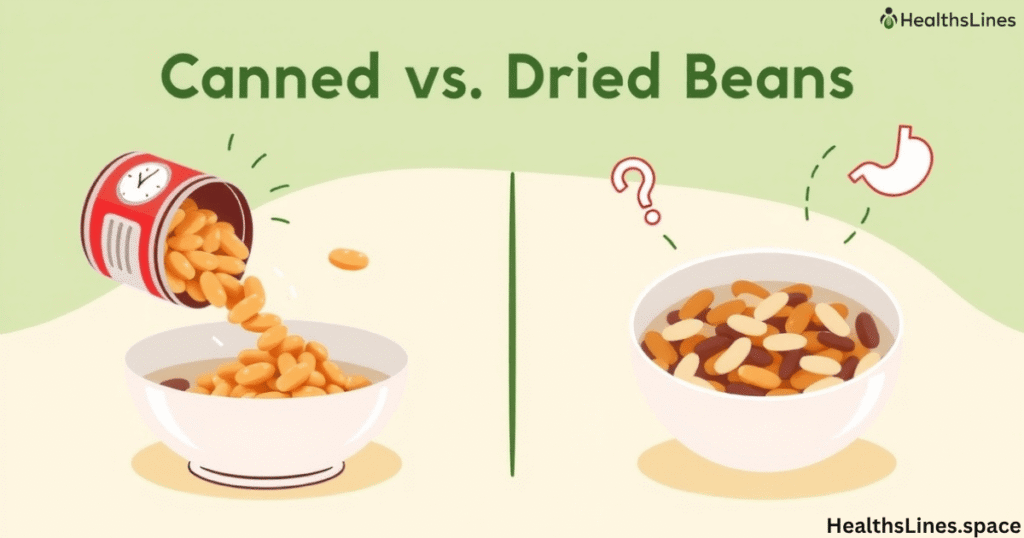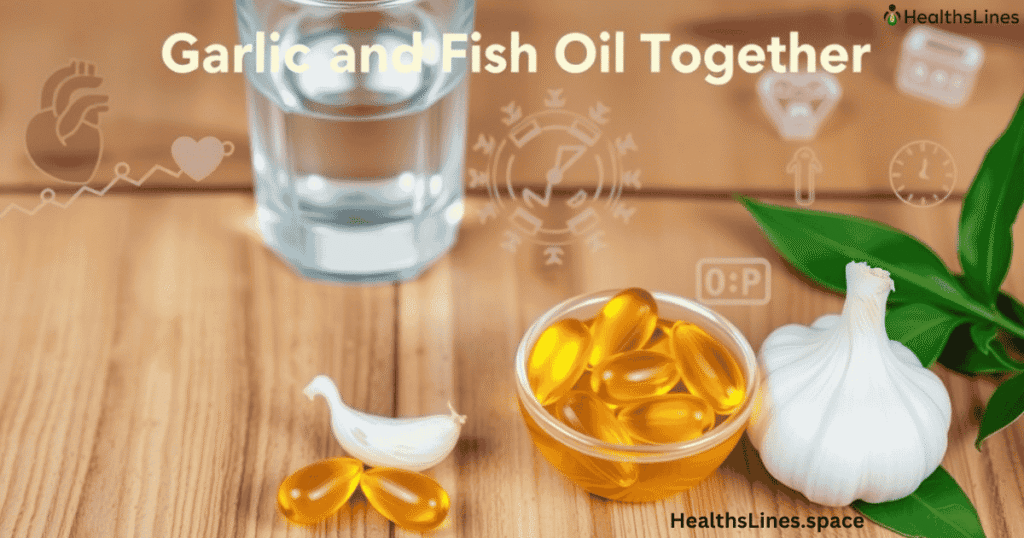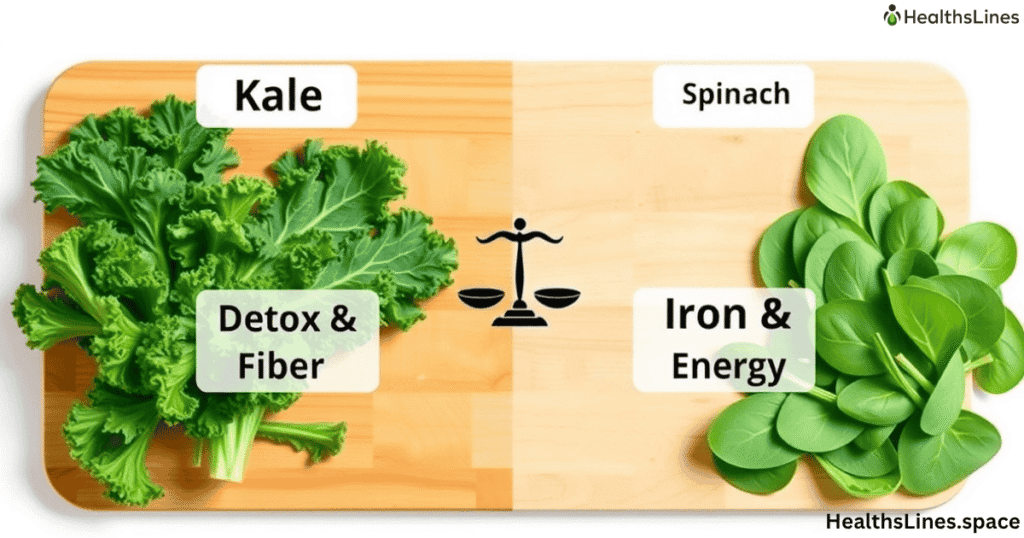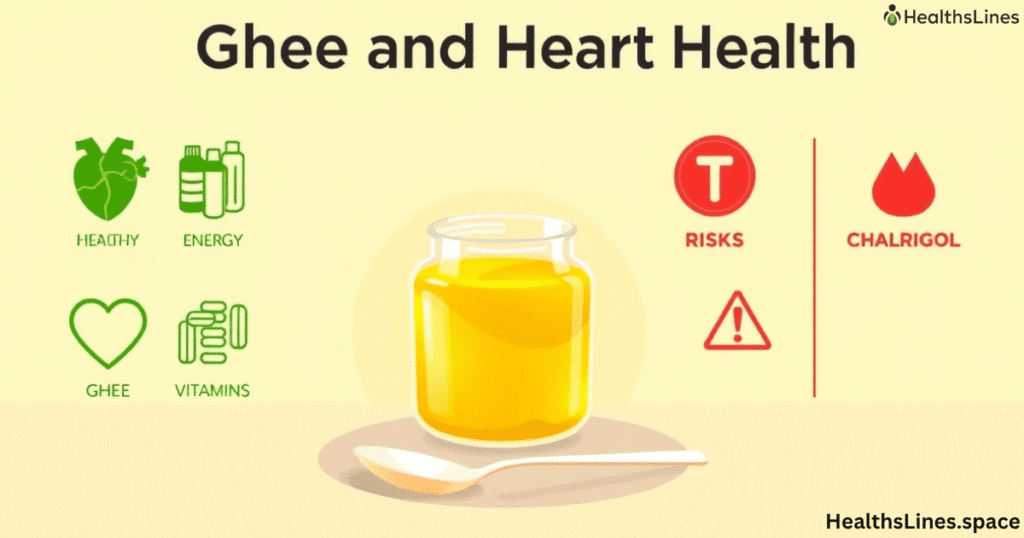What Happens When You Cook With Algae Oil
Algae oil is a new type of cooking oil made from marine algae. It is rich in omega-3 fatty acids, especially DHA, which is good for your brain health and heart health. This oil is different from traditional oils because it comes from algae grown in tanks instead of plants grown in soil. This makes it more sustainable and better for the planet.
When you cook with algae oil, the food keeps its flavor while gaining extra nutrients. Algae oil has a very high smoke point, around 485°F, which means you can cook it at high heat without breaking down its healthy fats. That makes it safe for frying, baking, roasting, and sautéing. Unlike oils that lose their health benefits when heated, algae oil holds onto its nutrients, even under high temperatures.
What Algae Oil Really Is and How It’s Made
Algae oil is made from a special kind of algae called microalgae. These tiny plants grow in water and are rich in DHA, a type of omega-3 fatty acid that helps with brain health and heart health. The most common type used for making algae oil is called Schizochytrium. This type of algae grows quickly and produces large amounts of oil, especially DHA-rich oil. What makes algae oil special is that it is not taken from fish. Instead, it comes directly from the algae, which is where fish get their omega-3s in the first place. That’s why algae oil is called a true vegan cooking oil.
To make algae oil, producers grow the algae in big tanks where the temperature, light, and nutrients are carefully controlled. The algae are fed simple sugars so they can grow and multiply. Once they are mature, the oil is taken out using a clean, chemical-free process. After that, the oil is filtered and purified to make it safe and ready for cooking. This method doesn’t harm the ocean, use much land, or require pesticides. It’s one of the cleanest ways to make oil today. That’s why algae oil is seen as a smart, eco-friendly choice for people who want to eat healthy and care for the environment.
Nutritional Profile of Algae Oil
Algae oil is full of healthy fats. One tablespoon contains about 120 calories, 13 grams of total fat, and 0 grams of carbs. Out of the total fat, 90% is unsaturated, mostly monounsaturated fat and DHA omega-3.
Here is a quick nutritional comparison:
| Oil Type | Calories (1 tbsp) | Total Fat (g) | Saturated Fat (g) | Monounsaturated Fat (g) | Omega-3 Content (mg) |
| Algae Oil | 120 | 13 | 1 | 10 | 400-700 (mostly DHA) |
| Olive Oil | 119 | 14 | 2 | 10 | <100 |
| Canola Oil | 124 | 14 | 1 | 8 | 1,300 (ALA form) |
| Sunflower Oil | 120 | 14 | 1 | 3 | 0 |
Unlike other oils that contain ALA, the plant-based omega-3 that converts poorly in the body, algae oil contains DHA, which is the form your body uses directly. This makes algae oil a smarter choice if you’re looking to boost your omega-3 intake.
How Cooking Affects the Nutrients in Algae Oil
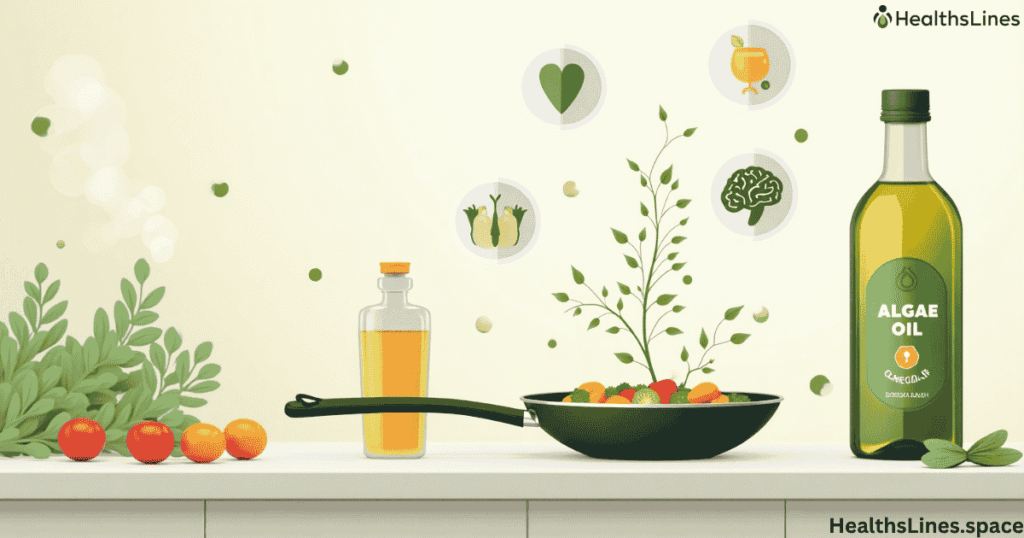
Algae oil has a very high smoke point, which means it stays stable even when heated to high temperatures. Its smoke point is around 485°F, making it one of the best oils for cooking methods like frying, roasting, grilling, or baking. Many cooking oils start to break down at lower temperatures. When oils break down, they can lose their healthy fats and even form harmful chemicals. But algae oil holds up well, which helps it keep its nutrients, especially DHA omega-3.
Studies show that when algae oil is used in high-heat cooking, it keeps most of its omega-3 fatty acids, including DHA. One study found that algae oil retained over 90% of its DHA even after heating to 400°F. That means you can cook your food without worrying about losing the healthy parts of the oil. This is very different from oils like flaxseed or walnut oil, which lose their omega-3 benefits quickly when exposed to heat. Because of this stability, algae oil is not just a supplement—it’s perfect for everyday cooking. You get both taste and health in one product. So if you’re looking for an oil that supports your heart health and brain health, even while cooking, algae oil is one of the best choices you can make.
Real Health Effects of Eating Algae Oil Regularly
Eating algae oil every day can help your body in many important ways. One of its biggest benefits is that it’s rich in DHA, a powerful type of omega-3. Your body needs DHA to support brain health, improve memory, and keep your thinking sharp. DHA also plays a big role in heart health by lowering bad cholesterol (LDL) and raising good cholesterol (HDL). It can also help reduce inflammation, which lowers the risk of long-term diseases like heart disease and arthritis.
Several scientific studies show the power of algae oil. In one clinical trial published in the journal Lipids in Health and Disease, people who took algae-derived DHA had healthier blood fat levels after just a few weeks. Another study found that regular use of DHA helped older adults keep better memory and focus. Because algae oil gives you these health benefits without needing to eat fish, it’s great for people who follow a vegan or plant-based diet.
The oil is also free from toxins like mercury that are sometimes found in fish. That makes it safer for people who can’t eat seafood. With regular use, algae oil can improve your heart, brain, and overall wellness while giving your meals a clean, healthy fat that works with any diet.
Algae Oil vs Other Cooking Oils
When comparing algae oil with other popular oils, a few things stand out. Algae oil is more stable at high heat, has more DHA, and is better for the environment. It has a neutral flavor, so it doesn’t change the taste of food.
Let’s compare key features:
| Feature | Algae Oil | Olive Oil | Coconut Oil | Canola Oil |
| Omega-3 Type | DHA | Trace | None | ALA |
| Smoke Point (F) | 485 | 375 | 350 | 400 |
| Flavor Profile | Neutral | Fruity | Sweet | Mild |
| Vegan-Friendly | Yes | Yes | Yes | Yes |
| Sustainability | High | Medium | Low | Medium |
As you can see, algae oil offers unique advantages that even popular oils can’t match. It brings health and environmental benefits in one package.
Who Should and Shouldn’t Use Algae Oil
Algae oil is safe and healthy for most people. It’s especially good for those who want more omega-3s in their diet without eating fish. That makes it perfect for vegans, vegetarians, and anyone with fish allergies. It’s also a great choice for people who want to support their heart health or improve brain function through a clean and simple cooking oil. Since it’s plant-based and rich in DHA, many nutritionists recommend it during pregnancy to help support the baby’s brain development.
People with sensitive stomachs usually tolerate algae oil well, especially when used in cooking. It’s also safe for kids and older adults who need more omega-3 but don’t like the taste of fish. Plus, algae oil doesn’t cause fishy burps or smells like fish oil capsules often do. That makes it easy to include in your meals every day.
However, some people should be cautious. If you already take high doses of omega-3 supplements, adding more from algae oil might not be necessary. Too much omega-3 can cause side effects like blood thinning or upset stomach. If you’re on blood-thinner medication or have a bleeding disorder, it’s best to talk to your doctor first. But for most people, algae oil is a simple, safe way to cook with purpose and protect long-term health.
Where to Find Algae Oil and How to Use It Right

You can find algae oil online and in health food stores. Brands like Thrive Algae Oil, iWi, and NutraVege offer high-quality options. Look for oils that are cold-pressed and clearly list DHA content on the label.
This oil is very versatile. You can use it for sautéing, stir-frying, baking, or even as a salad dressing. It doesn’t overpower dishes, so it works well in almost any recipe. Just make sure you store it in a cool, dark place to keep the omega-3s fresh.
Should You Make the Switch to Algae Oil?
If you want a healthy, vegan cooking oil that’s rich in DHA omega-3, then algae oil is a smart choice. It’s stable for cooking, tastes neutral, and supports your heart health and brain health. It’s also sustainable, which is a bonus for the planet.
Still, it’s important to use it as part of a balanced diet. Like any oil, it’s high in calories, so moderation is key. If you’re trying to replace unhealthy fats in your diet, algae oil can make that transition easier.
Conclusion
Medical experts often praise algae oil for its strong DHA content and clean source. According to Dr. Michael Roizen from the Cleveland Clinic, “Algae oil is one of the best plant-based omega-3 sources available today. It provides the same benefit as fish oil without the environmental downside.”
Studies published in journals like “Nutrition Reviews” and “The American Journal of Clinical Nutrition” support this. They confirm that algae-based DHA is as effective as fish-derived DHA when it comes to improving blood fat levels and supporting cognitive health.
